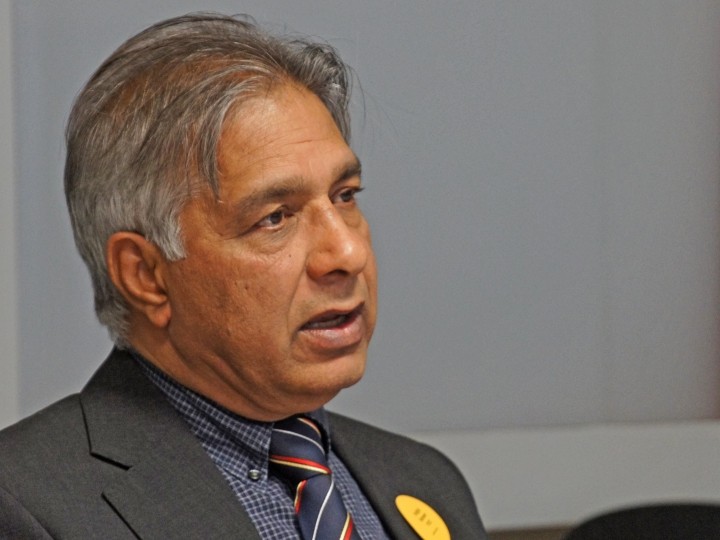LAHORE, Pakistan: A National Convention on “Democracy Vs Tyranny of Majority” was held in Lahore on National Minorities Day in remembrance of the 73rd anniversary of Jinnah’s famous speech on August 11, 1947 emphasizing religious freedom and equality.
The participants expressed their deep concern at the escalation of violence against religious minorities in the Country.
The speakers also underlined the threats posed to the democratic order by the institutionalization of religious and sectarian intolerance in the guise of majoritarian interests, exemplified in recent legislation by the Punjab assembly in particular, on the protection of Islam and Punjab Textbook and Curriculum Board.
The Convention was held under the auspices of Centre for Social Justice (CSJ) in collaboration with broad-based organizations including the Human Rights Commission of Pakistan (HRCP), the National Commission for Justice and Peace (NCJP), Cecil and Iris Chaudhry Foundation (CICF), Awam Pakistan, Rawadari Tehreek, and Human Friends Organization (HFO).
The Convention opened with a documentary about the importance of National Minorities Day.

In the opening speech, the Executive Director of CSJ and Chairperson of the People’s Commission for Minorities’ Rights Peter Jacob said that all minorities were facing exclusion in the face of the government’s oligarchic characteristics.
Peter Jacob emphasized that “The government should make it a policy priority to strengthen institutional protection of minority rights by undertaking legal, policy and administrative measures to cater to the challenges of inclusion of minority citizens in Pakistan”.
Across the spectrum, parliamentarians, civil society activists, human rights workers, and minority community representatives participated to advance and further the agenda for minority rights.
Prominent among the speakers were the Punjab Minister for Human Rights and Religious Affairs Ijaz Alam Augustine, Justice (retd) Nasira Iqbal, Advocate High Court Saroop Ijaz, journalist and Chairperson CSJ, Wajahat Masood Dr. Yaqoob Bangash, Dr. Rubina Feroze Bhatti, Dr. A. H. Nayyar, the Member of National Commission on Minority Rights (NCMR) Albert David, Deputy leader of Opposition Punjab, Tahir Khalil Sindhu, MPA Mahinder Pal Singh, MNA & the Parliamentary Secretary Ministry of Religious Affairs Shunila Ruth and Dr. Shoaib Suddle.
While addressing the convention, Ijaz Alam Augustine said “The government is fully committed to protecting rights of minorities – a number of legislative developments and policy measures have been taken to accommodate the interests of minorities.”
Wajahat Masood said that “The autocratic and totalitarian regimes tend to persecute minorities. In Pakistan, minorities should have equality of citizenship in status, opportunities, and rights.”
The government urged to protect minorities from violence and socio-political order from majoritarianism
Dr. A. H. Nayyar said “On August 11, 1947, Quaid-i-Azam Mohammad Ali Jinnah promised on the floor of the Constituent Assembly of Pakistan that in the country to be born in three days all the citizens irrespective of their faith will be equal in the eyes of the state and the law, that all the people will be free to profess and practice their religions, and the state will not discriminate between people of one faith against another. Most certainly, a Pakistan based on these principles would have been a more tolerant and peaceful country than what it is now. Nevertheless, the Quaid’s country has fallen hostage to obscurantism.”
Albert David said “It is time that “equality,” the true essence of Jinnah’s speech of 11th August is implemented in letter and spirit. The minorities must be protected both socially and constitutionally, and it is the duty of the government to ensure this through visible and practical measures. The cultural and religious diversity should be celebrated and inclusiveness should be promoted, especially in decision-making processes.”
Dr. Yaqoob Bangash emphasized the construction of a common basis for shared identity, saying, “On August 11, 1947, the Quaid-e-Azam set the foundation of Pakistan on a One Nation Theory. For the Quaid, once Pakistan had been achieved, the country was composed of one nation and one united citizenship. He clearly stated that the state of Pakistan would treat all its citizens equally and that the religious beliefs of a person will play no political part. 73 years since that eventful day we are still waiting for a time when the Quaid’s vision of Pakistan is realized and that one equal national citizenship is achieved in the Country.”
Besides the main convention in Lahore, the proceedings were joined by hundreds of people from across the Country.
The Convention concluded with a resolution obliging the participants to continue to work for religious tolerance and religious freedom to make Pakistan a more inclusive and democratic polity.
Recorded video messages from Kamil Ali Agha (PML-Q), Siraj ul Haq (Jamaat-e- Islami) and Ahsan Iqbal (PML-N) were also played in the Convention.
